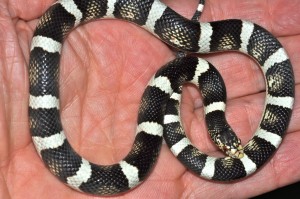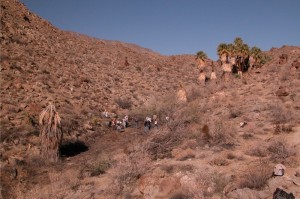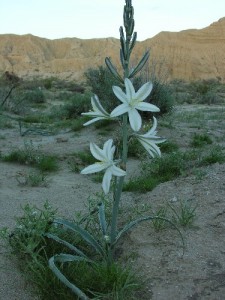I studied biology at the Johannes Gutenberg Universität in Mainz, Germany. My main interest then was population genetics and ecology. After five semesters I decided that I needed a new approach to understanding how nature works, so I enrolled in the physics program at the University of California in Riverside. My main interest there was astrophysics and cosmology, so I got involved with the high energy astrophysics group, researching cosmic rays, gamma ray bursts, and building a gamma ray telescope.
After graduating with a M.S. in physics in 1996, I went to work as an engineer in Silicon Valley. There I discovered bioinformatics and got really excited about it, so I took some bioinformatics related classes from the University of California in Santa Cruz. I eventually got a job as a scientific programmer at a biotech company in Palo Alto, and from 2007 to 2011 I worked at the National Center for Biotechnology Information in Bethesda, Maryland.
Ever since I was a kid, I had quite an affinity for the natural world. Growing up in the suburbs of Philadelphia, I was fascinated by the great variety of frogs, salamanders, fishes, and other creatures in the area. When I was ten, we moved to the city of Hamburg, Germany, where museums and the harbor took the place of frogs and salamanders. I found them to be almost as fascinating, but I still dreamt of becoming a biologist.

In my early twenties I had my first epiphany. I read that modern agricultural practices lead to a net loss of topsoil, and are therefore unsustainable. Since then, I’ve learned about many other aspects of our behavior that are considered unsustainable, which made me wonder about the concept of sustainability, and what it really means in an ecological and evolutionary context. My response at the time was to become an environmental activist, but deep down, I knew that our increasing ecological footprint was hinting at something very profound about human nature. I began to realize that in order to understand (living) nature, you have to understand human nature. So I switched my focus as a naturalist from the orchid genus Ophrys to the mammal genus Homo.

Conservationists often use moral arguments as a reason to protect nature, which made me wonder about the nature of morality. Studying sociobiology and evolutionary psychology led to my second epiphany, which was that morality is not just cultural, but part of human nature. It is therefore an adaptation that helps individuals survive in a complex social environment, and it definitely did not evolve in order to ensure the survival of other species, or even that of our own species.
In 2006 I had my third, and most important, epiphany, by changing my focus from psychology to ecology. Understanding why humans are so dominant is really an ecological question, so I asked the obvious question: What is the human ecological niche? The answer commonly given, that we are hunter-gatherers, might have been true in the past, but it doesn’t describe the role we play in the biosphere today. It’s not hunter-gatherers that are transforming the Holocene into the Anthropocene. Answering the question What is the human ecological niche? led me to realize that we are global Darwinian demons, and it is this aspect of human nature that is responsible for the current evolutionary transition to a human-dominated planet.


You must log in to post a comment.